
La página que intenta visitar sólo está disponible en inglés. ¡Disculpa!
The page you are about to visit is currently only available in English. Sorry!

I'm no stranger to the Gulf Coast, not just a warm body dropped in to assist with the ongoing oil disaster. This is personal for me.
See, I've been birding the Gulf Coast for nine years, since I was a college freshman in Texas. My first introduction was magical, an experience I've never forgotten, and in the years since, this spectacular mosaic of ecosystems and the birds that thrive in it have come to hold a very special place in my heart.
The same heart that now hurts so much.
Justin Nobel has posted a powerful account of last Friday's survey in Jefferson Parish, La., and Melanie Driscoll plans soon to share her thoughts from the day as well.
So this is my offering. In pictures, birds of beach and surf, all captured Friday as they went about their lives.
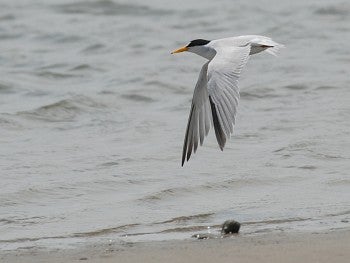
Least Tern, a tiny, beach-nesting fisheater.
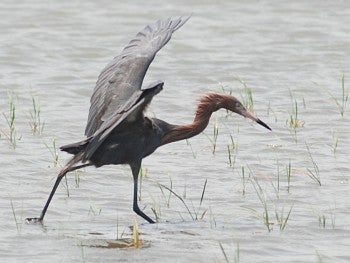
A Reddish Egret, specialized for life along warm, salty coasts, "dances" as it hunts in a shallow tidal pool.
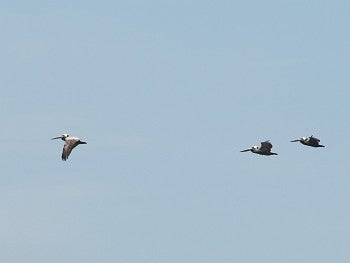
Brown Pelicans, once wiped out in Louisiana, now reintroduced and thriving but threatened again by habitat loss and the oil spill.
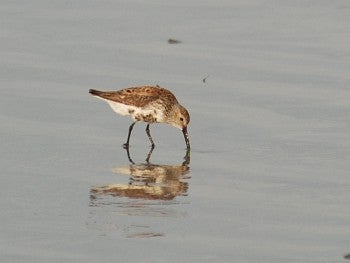
A Dunlin, an Arctic-nesting sandpiper. Migrant shorebirds are still present on the Gulf Coast, putting them in danger too.
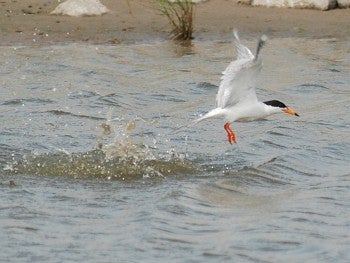
A Forster's Tern emerges after plunging into the water for prey.
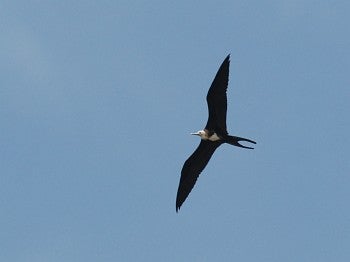
Magnificent Frigatebirds soar effortlessly in warm, humid Gulf air. At least one frigatebird has died after coming into contact with oil from the spill. Others have likely perished far out to sea.
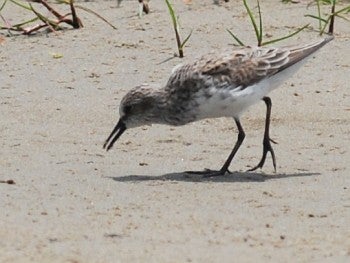
In this shot, you can see the partially webbed toes for which this Semipalmated Sandpiper is named. It is en route from South America to the Arctic tundra to breed.
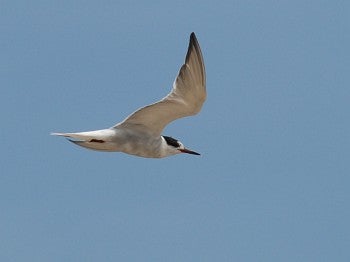
A Common Tern, also on its way north to breed.
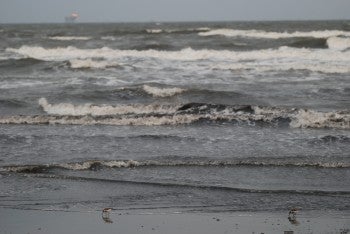
As evening falls, Dunlin feed at the edge of the surf, south winds whip the Gulf into a fury, and an oil rig glows on the horizon.
David J. Ringer
Mississippi River Initiative
National Audubon Society